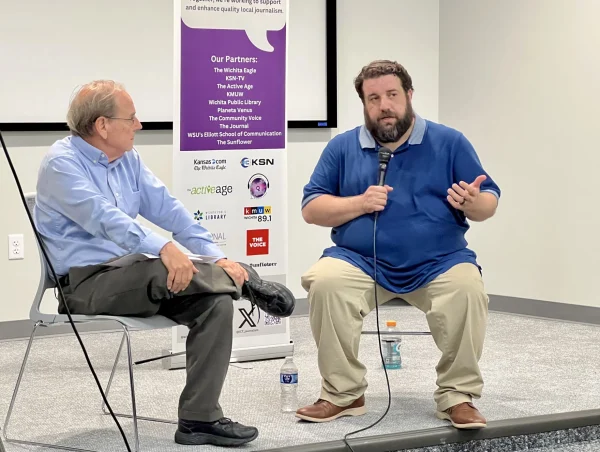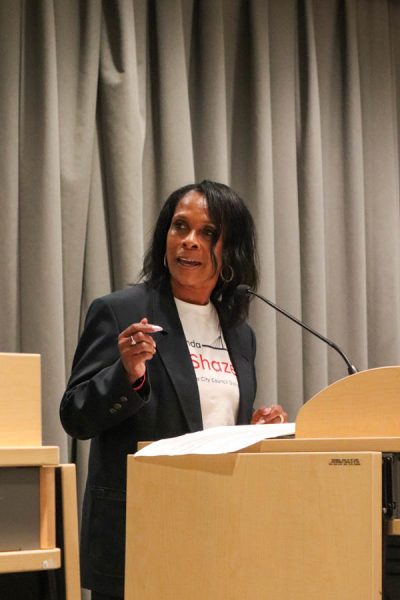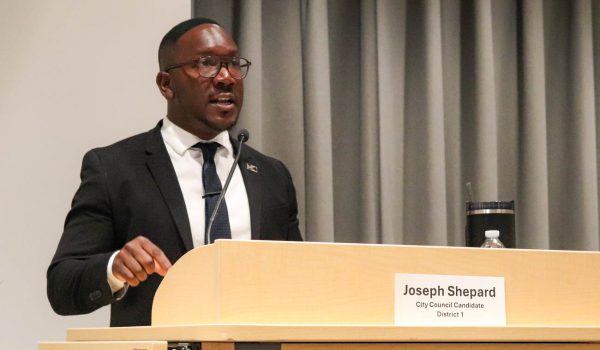Monsanto VP talks agricultural efficiency
“How many think big farmers actually steer their own tractors?” Stephen Padgette, vice president of research and development investment strategy for Monsanto Co., asked a lecture hall full of Wichita State students Tuesday.
A few snickers broke the silence. Technology has changed the face of agriculture, which is why Padgette, a Distinguished Science Fellow, was invited to speak at WSU.
The presentation featured technology Monsanto, an agrochemical and biotechnology company based in St. Louis, Mo., is working on through research and development. The end goal is to improve crop yield to help feed a growing population.
Padgette’s presentation showed that the landmass being used for crop production is about the size of South America. Predictions point out that food production likely needs to double by 2050 to feed the human population.
Padgette joined Monsanto in 1984 and is the co-inventor of the gene leading to the Roundup Ready (RR) trait. It is the most widely used biotechnology trait in agriculture.
The technology, while useful in saving time and money for farmers, is controversial. Padgette said he understands why, but that fears should be dispelled.
“What I absolutely know is that genetically modified crops are the most studied food in the world,” Padgette said.
Genetically modified organisms (GMOs) go through many tests, including testing the actual protein and studying the feed efficiency for animals. The results are then reported to the Food and Drug Administration.
Padgette said he doesn’t think the controversy comes from a safety issue.
“I think it more comes from the emotion,” he said. “It comes from the distrust of large companies, it comes from the distrust of large agriculture.”
Kevin Ensz, a graduate student studying chemistry, said he worked for Monsanto at a breeding station over the summer just north of Andale. He said he didn’t notice the controversy when he was working there.
“Kansas is agricultural, so maybe they see more of the benefit and less of the controversy.”
Padgette said Monsanto is moving more toward the biological approach, although biotech will still be a part of a solution to increasing crop efficiency.
“We spend more on breeding than we do on biotech, we just happen to be infamous for biotech and genetic modification,” he said.







